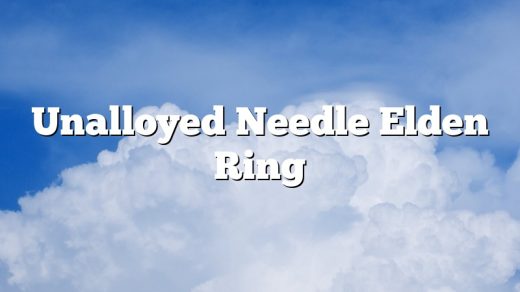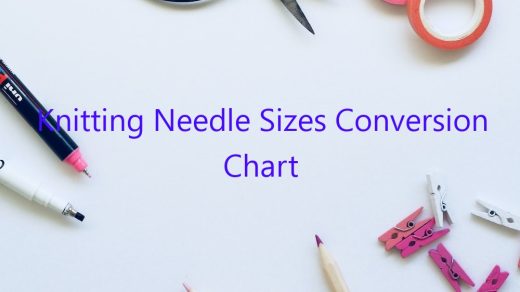How much money do you need to set aside to pay taxes on your hobby income? This is a question that many people who earn income from their hobbies have to ask themselves. The amount of money you’ll need to pay in taxes will vary depending on the type of hobby you have and how much income it generates.
There are a few things you need to know about hobby income and taxes. The most important thing to remember is that hobby income is considered taxable income. This means that you will need to report any income you earn from your hobby on your tax return.
In addition, you will need to pay taxes on the income you earn from your hobby. The good news is that you may be able to deduct some of the expenses associated with your hobby from your taxable income. This can help reduce the amount of taxes you owe on your hobby income.
There are a few things you need to know about deducting expenses associated with your hobby. The most important thing to remember is that you can only deduct expenses that are considered to be related to your hobby. For example, you can’t deduct the cost of food or clothing from your taxable income, even if you incurred these costs while engaging in your hobby.
However, you can deduct expenses such as the cost of equipment or supplies used for your hobby, as well as the cost of travel related to your hobby. In addition, you can deduct the cost of any classes or lessons you may have taken to improve your skills in your hobby.
It’s important to keep track of all of the expenses associated with your hobby. This will help you to determine how much you can deduct from your taxable income. You will also need to keep track of the income you earn from your hobby so that you can report it on your tax return.
It’s a good idea to speak with a tax professional to get more information about how to report hobby income and deductions on your tax return. They can help you determine the best way to maximize your tax savings on your hobby income.
Contents
How much money can you make as a hobby before paying taxes?
Income from a hobby is typically considered taxable, but there are some exceptions.
The IRS defines a hobby as “an activity not engaged in for profit.” This means that if you are generating income from your hobby, you are required to report that income on your tax return and may be subject to income tax and self-employment tax.
However, there are a few exceptions to this rule. If you are able to demonstrate that your hobby is in fact a business, you may be able to claim business expenses and deductions. Additionally, if you are running your hobby as a side business, you may be able to offset your hobby income with losses from the business.
In order to determine whether your hobby is in fact a business, the IRS looks at a number of factors, including:
– The nature of the activity
– The time and effort you put into the activity
– The expectation that you will generate profits
– The history of income or losses from the activity
– The amount of money you have invested in the activity
– The amount of personal pleasure you derive from the activity
If you are able to establish that your hobby is in fact a business, you may be able to deduct business expenses, including:
– The cost of equipment or materials
– The cost of advertising
– The cost of business licenses or permits
– The cost of accounting or legal services
– The cost of travel and meals related to the business
– The cost of office supplies
However, you are only able to deduct expenses that are “ordinary and necessary” for the business. This means that you cannot deduct expenses that are lavish or extravagant.
If you are running your hobby as a side business, you may be able to offset your hobby income with losses from the business. In order to do this, you must be able to demonstrate that the business is legitimate and that you are not simply running the business as a way to offset your hobby income.
If you are able to meet the requirements for claiming your hobby as a business, you may be able to save a significant amount of money on your taxes. However, if you are not able to meet the requirements, you will still be required to report all income from the hobby on your tax return.
Do I have to claim my hobby on my taxes?
There is no definite answer when it comes to claiming your hobby on your taxes. Whether or not you claim it depends on a variety of factors, including whether the hobby generates income and how much money is made from it.
If you are unsure whether or not you should claim your hobby on your taxes, it is best to speak with a tax professional. They will be able to help you navigate the tax code and make sure you are taking all of the proper deductions.
What qualifies as a hobby for tax purposes?
What qualifies as a hobby for tax purposes?
A hobby is an activity that you engage in for recreation or pleasure. It is not your main job and you do not get paid for it.
There are certain things that you need to do in order to qualify your activity as a hobby for tax purposes. Firstly, you need to show that you are doing it for recreational or pleasure purposes and not to make a profit. Secondly, you need to show that you are not engaged in it as a business.
There are a few things that you can do to help prove that your activity is a hobby. You can keep a record of how much money you spend on it and how much money you make from it. You can also show that you do not engage in it as a business by keeping track of the time you spend on it and how much money you earn from it.
If you are doing something as a hobby and you make a profit from it, you will need to declare that income on your tax return. However, you can offset the income from your hobby with any expenses that you have incurred in order to do the activity. This includes costs such as equipment, materials, and travel costs.
If you are not doing something as a hobby and you are making a profit from it, you will need to declare that income on your tax return and you will be taxed on it. However, you can also claim any expenses that you have incurred in order to do the activity. This includes costs such as equipment, materials, and travel costs.
It is important to note that the rules for what qualifies as a hobby for tax purposes are different in every country. Make sure to check with your local tax authority to find out the specific rules that apply to you.
What is the hobby loss rule?
The hobby loss rule is a tax law that allows taxpayers to deduct hobby expenses up to the amount of hobby income. The rule applies to individuals as well as businesses.
Hobby expenses are deductible if they are ordinary and necessary to the hobby. This includes things like supplies, equipment, and dues to clubs related to the hobby. The expenses must be reasonable in relation to the income generated by the hobby.
There are a few things to keep in mind when claiming a hobby loss. First, the losses can only be used to offset income from the same hobby. Second, the deductions cannot be used to reduce other income, such as wages or self-employment income. Finally, the deductions can only be claimed if the hobby is pursued for profit.
There are a few exceptions to the hobby loss rule. For example, the losses can be used to offset other income if the hobby is converted into a full-time business. Additionally, the losses can be used to offset other income if the taxpayer can show that the hobby is not pursued for profit.
The hobby loss rule is an important tax law for taxpayers who hobby. It allows them to deduct reasonable expenses related to the hobby, up to the amount of income generated by the hobby.
Do I have to pay taxes if I sell crafts?
If you are a crafter, you may be wondering if you have to pay taxes on the money you make from selling your crafts. The answer to this question depends on a few different factors.
In most cases, you will have to pay taxes on the income you earn from selling your crafts. However, there are a few exceptions. If you are selling your crafts at craft fairs or other events, you may be able to avoid paying taxes on your income if you meet certain requirements.
If you are selling your crafts online, you will typically have to pay taxes on your income. However, there are a few exceptions to this rule. You may be able to avoid paying taxes on your income if you sell your crafts through a site like Etsy.
It is important to note that these are just general guidelines. The rules for paying taxes on income from selling crafts can vary depending on your specific situation. For more information, you should contact a tax professional.
Can you deduct hobby expenses 2021?
The Internal Revenue Service (IRS) allows taxpayers to deduct certain expenses incurred while engaging in a hobby. In order to qualify, the hobby must be pursued primarily for recreation or pleasure and not for profit. The rules for deducting hobby expenses can be complex, and taxpayers should seek the advice of a tax professional to ensure they are taking all applicable deductions.
The most common expenses that can be deducted in connection with a hobby are those related to the costs of goods or services used in the activity. This may include, for example, the cost of materials used in crafting, the price of admissions to sporting events or concerts, or the cost of lessons for learning a new hobby. In some cases, taxpayers may also be able to deduct the costs of travel related to their hobby, such as the cost of gasoline or airfare.
There are several limitations on the kinds of expenses that can be deducted in connection with a hobby. For example, taxpayers cannot deduct the value of their time or labor spent on the activity, nor can they deduct any expenses that are related to the production of income from the hobby. In addition, the total amount of deductions that can be taken for a hobby in a given year cannot exceed the amount of income generated from the hobby.
Taxpayers should keep in mind that the rules for deducting hobby expenses may be different from the rules for deducting business expenses. For example, the standard deduction is not available for hobby expenses, and certain expenses that are deductible in connection with a business may not be deductible in connection with a hobby.
It is important to note that the IRS may audit taxpayers who claim deductions for hobby expenses. In order to avoid any problems with the IRS, taxpayers should be able to provide evidence that the hobby is pursued for recreation or pleasure and not for profit.
What hobby expenses can I deduct?
If you’re like many Americans, you enjoy spending your free time participating in hobbies. Whether you like to knit, play golf, or work on your car, you may be wondering if you can deduct any of your hobby expenses on your taxes.
The good news is that you may be able to deduct some of your hobby expenses. However, there are a few things to keep in mind.
First, the expenses you deduct must be related to your hobby. In other words, you can’t deduct the cost of going to the movies or buying new clothes if you’re claiming those expenses as deductions for your stamp collecting hobby.
Second, you can only deduct expenses that exceed the amount of income you generated from your hobby. So, if you earned $500 from your stamp collecting hobby, you can’t deduct any expenses related to that hobby.
Third, you can only deduct expenses that are considered “ordinary and necessary.” This means that the expenses you deduct must be common and helpful in order to pursue your hobby. For example, the cost of Bibles and religious materials is a deductible expense for someone who collects religious memorabilia, but the cost of a new stereo system would not be a deductible expense for someone who collects records.
Finally, you can only deduct expenses up to the amount of your hobby income. So, if you earn $1,000 from your stamp collecting hobby, you can only deduct expenses up to $1,000.
If you meet all of these requirements, you can deduct the following expenses:
-The cost of equipment or supplies used in your hobby
-The cost of transportation to and from your hobby activities
-The cost of admission to events related to your hobby
-The cost of renting space or equipment for your hobby
-The cost of tools or materials used in your hobby
-The cost of books, magazines, or other materials related to your hobby
-The cost of tuition or other fees related to classes or lessons related to your hobby
-The cost of repairs and maintenance to equipment related to your hobby
-The cost of insurance premiums for equipment related to your hobby
-The cost of storage facilities for equipment or supplies related to your hobby
-The cost of web hosting or domain name registration for a website related to your hobby
Keep in mind that you can only deduct expenses up to the amount of your hobby income. So, if you earn $2,000 from your stamp collecting hobby, you can only deduct expenses up to $2,000.
If you have any questions about what expenses you can deduct, be sure to speak with a tax professional.




